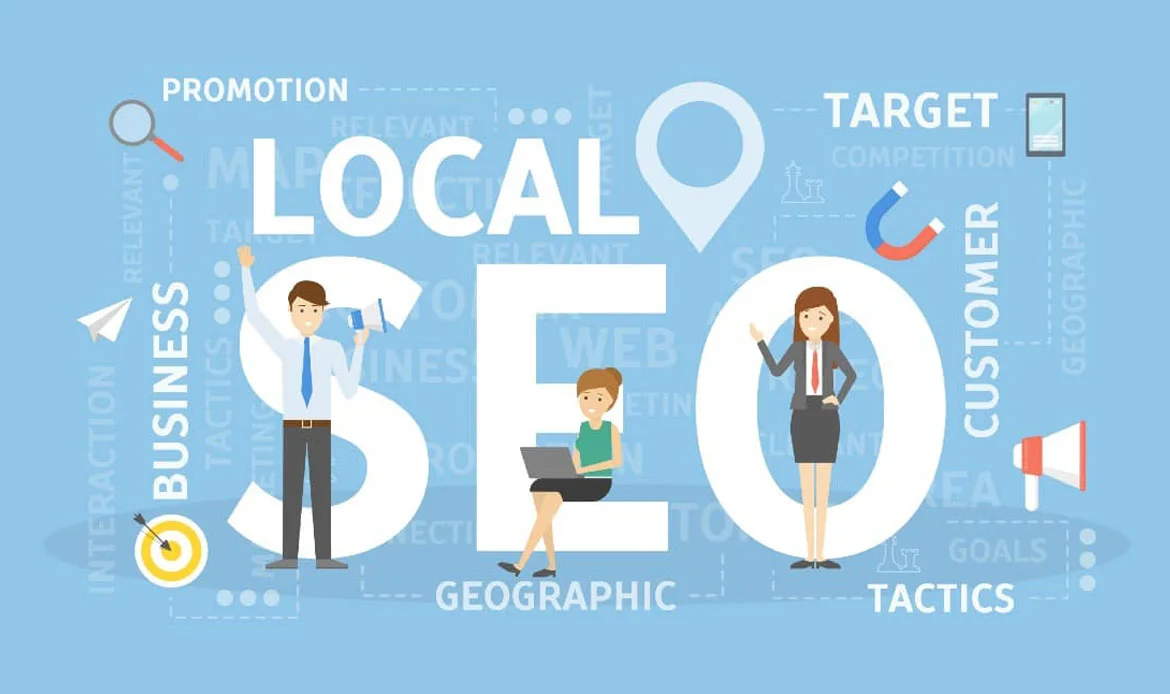In this comprehensive exploration, we embark on a journey into the future of SEO, offering insights into the anticipated trends and predictions for 2025.
Whether you’re a seasoned SEO professional, a business owner looking to bolster your online presence, or a curious observer of the digital realm, this article will serve as your guide to understanding the SEO landscape of tomorrow.
In the ever-evolving digital landscape, where the internet serves as a vast ecosystem of information and commerce, staying ahead of the curve is not just advantageous but essential. Search Engine Optimization (SEO), the art and science of improving a website’s visibility on search engines, is in a perpetual state of flux.
From the integration of artificial intelligence to the dominance of voice search and the increasing emphasis on user experience, the SEO landscape is set to be a dynamic and challenging arena for businesses, digital marketers, and website owners. Let’s delve into the anticipated trends and predictions for the future of SEO in 2025, offering insights to help businesses and digital marketers prepare for the evolving landscape.
SEO in 2025: Key Trends and Expert Predictions to Stay Ahead
AI-Driven SEO Will Reach New Heights
Artificial Intelligence (AI) and machine learning will continue to play a pivotal role in SEO. In 2025, we can expect AI-driven tools to become even more sophisticated. These tools will assist with content creation, automated optimization, data analysis, and predictive modeling. Leveraging AI for SEO will become a standard practice for staying competitive.
AI-driven SEO tools can help in various aspects of optimizing a website for search engines:
Content Creation: They can generate content ideas, suggest keywords, and even assist in writing high-quality content.
Automated Optimization: They can automatically optimize on-page elements like meta tags, headings, and images for better SEO.
Data Analysis: They can analyze website traffic, user behavior, and keyword performance to provide insights for decision-making.
Predictive Modeling: AI can predict trends and outcomes based on historical data, helping SEO professionals make informed decisions.
Hyper-Personalization in Search
User expectations for highly personalized content will drive search engines to deliver more tailored search results. SEO strategies will need to focus on creating content and experiences that resonate with individual users. This will require in-depth data analysis, user behavior tracking, and content customization.
While hyper-personalization in search offers exciting opportunities to enhance user experiences and engagement, it also poses challenges. Privacy concerns, the responsible use of data, and striking the right balance between personalization and user privacy are key considerations
Voice Search’s Ascendance
Voice search will continue to grow in popularity, altering the way people interact with search engines. Instead of typing short and concise keywords, users are now more likely to ask questions or use conversational language when using voice assistants like Siri, Google Assistant, or Alexa.
For example, instead of typing “best Italian restaurants,” a user might ask, “What are the best Italian restaurants near me?” This shift in search behavior means that SEO practitioners need to adapt their strategies to accommodate these natural, conversational queries.
To succeed in the world of voice search, SEO professionals must optimize their content for voice queries. This involves understanding the types of questions users are likely to ask related to their industry or niche and creating content that directly addresses these queries. This might involve producing FAQ pages, blog posts that answer common questions, and other content that matches the conversational tone of voice searches.
SEO practitioners will need to optimize for voice queries, which often have a conversational tone. Long-tail keywords and featured snippets will become even more essential for ranking in voice search results.
Visual Search Optimization
Visual search is gaining traction, especially with the integration of visual recognition technology. Visual search is a search method that allows users to input an image or a screenshot as a query instead of text. It has gained significant traction, particularly with the advancement of visual recognition technology and the increasing prevalence of image-based social media platforms.
Users can now snap a picture of an object they like and search for similar items or related information online, making it a powerful tool for e-commerce, fashion, home decor, and more.
As visual search continues to grow, optimizing images and videos for search engines becomes vital for businesses and website owners. This involves making your visual content easily discoverable by search engines so that it can appear in search results when users perform visual searches.
The Rise of NLP and BERT
Natural Language Processing (NLP) and Google’s BERT algorithm will continue to shape search results. NLP and BERT have revolutionized the way search engines understand and interpret user queries. These technologies allow search engines to consider the context in which words and phrases are used, making search results more relevant and accurate.
With BERT, search engines can understand the context of prepositions, pronouns, and other connectors in a query. For example, in the query “best restaurants in New York to visit with kids,” BERT can correctly identify that “with kids” is crucial to understanding the user’s intent.
NLP and BERT help search engines recognize the underlying intent behind a user’s query. This means that search engines are better equipped to provide results that directly address the user’s needs.
Content creators and SEO practitioners must align their optimization efforts with user intent. This involves understanding the different types of intent, such as informational, navigational, and transactional, and tailoring content to meet those intents.
NLP and BERT also play a critical role in voice search, where users interact with search engines using natural language. Voice search queries often resemble conversations, and these technologies help voice assistants understand and respond to those queries effectively.
Augmented Reality (AR) and SEO
AR is transforming user experiences, and it’s expected to impact SEO as well. Businesses incorporating AR into their strategies will need to optimize AR content for search engines. This could include optimizing AR apps for mobile and integrating AR experiences into websites.
As AR technology continues to transform user experiences, businesses need to consider how to optimize their AR content for search engines. This involves making AR apps and web-based AR experiences search-engine-friendly, focusing on local SEO strategies, creating high-quality AR content, and using analytics to measure the impact of AR on SEO efforts.
Embracing AR as part of your overall SEO and digital marketing strategy can help your business stay competitive and provide unique and engaging experiences for your audience.
Video SEO’s Continued Growth
Video content will remain a dominant force in SEO. Platforms like YouTube will continue to serve as search engines in their right. Optimizing video content for search engines, including keyword-rich descriptions and transcripts, will be essential for visibility and audience engagement.
Optimizing video content through keyword research, metadata, transcripts, and engagement metrics is crucial for visibility and audience engagement. Consistency in branding and style across your video content can help with audience recognition and loyalty. Building a strong brand identity through your videos can encourage users to engage with your content regularly.
The Influence of Social Signals
Social signals, including social media engagement and content sharing, are expected to have a more pronounced impact on SEO. Brands that actively engage with their audiences on social media and produce shareable content will likely see SEO benefits.
Monitoring your social media metrics is essential to understand which content is resonating with your audience and driving social signals. Analytics tools can provide insights into which social platforms are most effective for your brand and where adjustments may be needed.
Niche and Local SEO
Niche-specific and local SEO strategies will become even more critical. Users are increasingly seeking hyper-local information and specific expertise. To succeed in these areas, businesses should focus on optimizing for niche keywords, engaging with niche communities, and ensuring comprehensive local SEO efforts, including Google My Business optimization and local link building.
By tailoring your strategies to meet the unique needs of your niche and local audience, you can enhance your online visibility and attract more relevant customers to your business.
SERP Features Domination
Search engine results pages (SERPs) will continue to evolve with featured snippets, knowledge panels, and rich snippets dominating. Search engine results pages (SERPs) have evolved beyond traditional organic listings. Today, SERPs include a variety of rich features designed to provide users with quick, concise answers to their queries directly on the search results page. SEO strategies will need to include optimizing for these SERP features, as they can lead to higher click-through rates and increased visibility.
Also, this can result in improved user engagement. Staying informed about the latest trends in SERP features and adjusting your approach accordingly can give you a competitive edge in the ever-changing world of search engine optimization.
Data Privacy and SEO Compliance
Data privacy regulations will continue to evolve, impacting how businesses handle user data. Compliance with data privacy regulations is not just a legal requirement; it also has implications for SEO. Search engines like Google take user privacy seriously and may penalize websites that violate data privacy rules or engage in unethical data practices.
Non-compliance can result in lower search engine rankings, diminished trust among users, and potential legal consequences. SEO professionals will need to stay updated on these regulations, ensuring websites are compliant. Focusing on transparent data practices can build trust with users and improve SEO rankings.
Mobile SEO Maturation
Mobile SEO will continue to mature as mobile device usage remains dominant. Google’s mobile-first indexing will be the norm, requiring websites to prioritize mobile-friendliness, responsive design, and fast-loading pages. Websites must prioritize mobile-friendliness to succeed in Mobile SEO. This includes ensuring that the website is responsive, meaning it adapts to different screen sizes and orientations, such as those of smartphones and tablets.
A responsive design ensures that users have a consistent and user-friendly experience across all devices. Google rewards mobile-friendly websites with higher rankings in mobile search results. Optimizing for mobile UX will be imperative, as search engines aim to deliver the best results for mobile users.
User Experience Remains Paramount
User experience (UX) signals, such as site speed, mobile-friendliness, and overall usability, will remain significant ranking factors. User experience signals have been increasingly integrated into search engine ranking algorithms because they directly impact how users interact with websites and the quality of their online experiences.
The loading speed of a website is a critical UX signal. Slow-loading pages frustrate users and can result in higher bounce rates. Optimizing for faster page load times, both on desktop and mobile, is essential. Prioritizing UX enhancements will be crucial, as search engines reward websites that offer seamless and enjoyable user experiences.
Cross-Channel Integration
The future of SEO will involve greater integration with other digital marketing channels. Instead of treating each channel in isolation, businesses are recognizing the value of creating holistic strategies that leverage the strengths of each channel to maximize visibility and return on investment (ROI).
SEO professionals will need to collaborate with teams handling content marketing, social media, email marketing, and paid advertising to create holistic digital strategies that maximize visibility and ROI.
Sustainability and SEO
As environmental concerns continue to rise, search engines are increasingly focused on promoting eco-friendly and sustainable practices. This means that sustainability is not only an ethical and environmental concern but also an emerging factor in SEO.
Search engines like Google are placing a growing emphasis on sustainability in various aspects of their operations, including data centers and office facilities. They are also looking at ways to reward businesses that adopt sustainable practices.
Google, for example, has pledged to operate entirely on carbon-free energy by 2030 and is actively supporting sustainability initiatives. This commitment may extend to the way search results are ranked.
Search engines may start to reward eco-friendly businesses or those that actively contribute to sustainability efforts. Brands that integrate sustainability into their SEO strategy may gain a competitive edge.
Quality Over Quantity in Content Creation
In 2025, the emphasis will shift further towards quality over quantity in content creation. Long-form, in-depth content that thoroughly addresses user queries will perform better. Users are increasingly seeking detailed answers to their questions, and search engines are prioritizing content that meets this demand. High-quality, comprehensive articles, guides, and resources are more likely to rank well.
Keyword stuffing and thin content will be penalized, making well-researched, valuable content crucial for SEO rankings. SEO success will be closely tied to a commitment to delivering the best possible user experience through high-quality content.
Enhanced E-A-T Signals
Expertise, Authoritativeness, and Trustworthiness (E-A-T) will continue to be critical factors in SEO. In 2025 search engines will likely place even more emphasis on content quality and the credibility of sources. Building E-A-T for your website will require not only high-quality content but also authoritative backlinks and expert authorship.
Building and maintaining E-A-T requires ongoing effort and a dedication to providing valuable, accurate, and trustworthy information to your audience. Websites that excel in these areas are more likely to rank well and succeed in the competitive digital landscape.
Continuous Adaptation
As we’ve seen, SEO is a dynamic field that requires continuous adaptation. Staying up-to-date with algorithm changes, industry trends, and emerging technologies will be an ongoing challenge. Regularly monitoring website performance, search rankings, traffic trends, and user behavior is essential. Tools like Google Analytics and Google Search Console provide valuable insights that can inform SEO strategies.
Monitoring also includes keeping an eye on competitors and industry leaders to identify successful tactics and emerging trends.
Frequently Asked Questions About SEO Trends and Predictions for 2025
What are the key SEO trends to watch in 2025?
Key SEO trends for 2025 include AI-driven content optimization, voice and visual search, mobile-first indexing, user experience prioritization, and semantic search. Adapting to these trends helps improve visibility, engagement, and overall search performance.
How will AI impact SEO strategies in the coming years?
AI will play a major role by analyzing search patterns, generating content insights, and predicting user intent. Leveraging AI-powered tools allows marketers to optimize content more effectively and stay ahead of algorithm updates.
What should businesses do to stay competitive in SEO for 2025?
Businesses should focus on creating high-quality, user-focused content, optimizing for voice and visual search, enhancing website speed and mobile experience, and using AI analytics to guide SEO decisions. Staying proactive with these strategies ensures long-term search visibility.
Conclusion
The future of SEO in 2025 promises to be a fascinating journey marked by technological advancements, user-centric experiences, and the evolution of search engine algorithms. To succeed in this ever-changing landscape, businesses and digital marketers must be agile, data-driven, and committed to delivering the best possible online experiences.
By embracing these trends and predictions, you can position your digital presence for sustained growth and prominence in the evolving world of SEO. Remember that the future of SEO is not a destination but an ongoing voyage of discovery and optimization.
Prepare Your Strategy for the Future of SEO in 2025
SEO is evolving faster than ever, and staying ahead of trends is crucial for long-term online success. In 2025, strategies will focus on AI-driven search, voice and visual search optimization, user experience, and semantic content.













